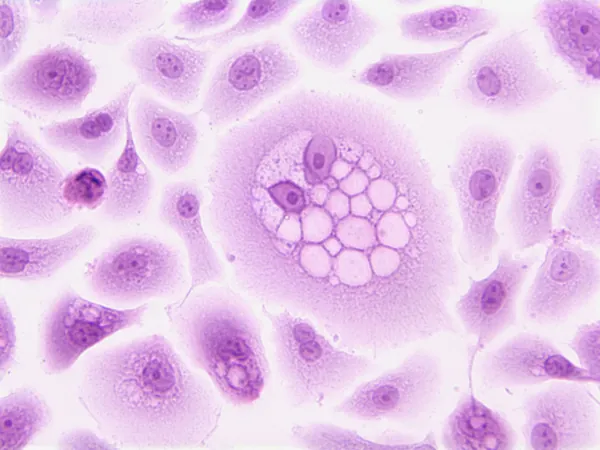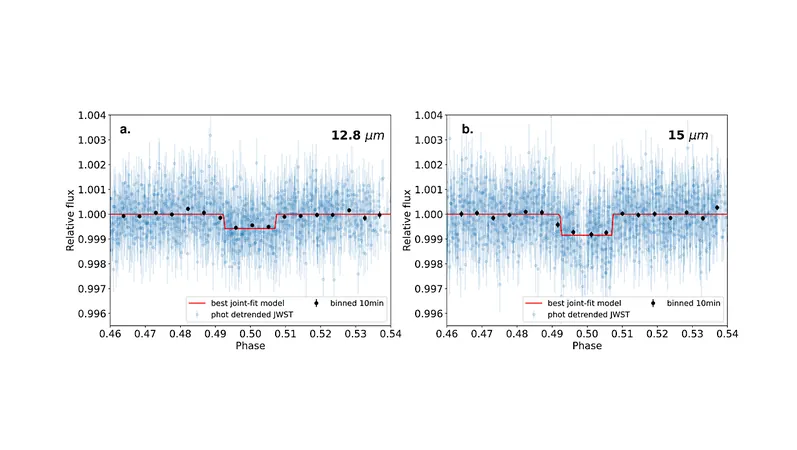
Revolutionary Immunotherapy Platform TRACeR-I Could Change the Way We Fight Cancer!
2024-12-13
Author: Siti
Researchers from the prestigious Children’s Hospital of Philadelphia (CHOP) and Stanford University have just made a groundbreaking discovery that could revolutionize cancer treatment. They've unveiled the intricate molecular structure of TRACeR-I, an innovative protein platform designed for reprogramming immune responses. This significant advancement has the potential to optimize cancer therapies by either directly modifying immune cells or crafting proteins capable of guiding these cells to detect and target cancer cells effectively.
Immunotherapy's Role in Cancer Treatment
Immunotherapy, hailed as a leading strategy for combatting cancer, autoimmune diseases, and viral infections, hinges on its capacity to specifically target disease-related cells. Monoclonal antibodies are already gaining traction for their ability to latch onto antigens—proteins produced by cancer cells that incite an immune response. However, these uniquely expressed antigens are often few and far between.
Focus on MHC Proteins
A game-changing aspect of this research is the focus on fragments of proteins presented on the surface of tumor cells via the major histocompatibility complex (MHC). This complex displays fragments of harmful materials, such as viral components or cancer cells, on the surface of our cells, alerting the immune system to their presence. With over 30,000 distinct versions of MHC-I proteins in humans, developing therapies capable of recognizing these peptides across diverse patient groups has been a daunting challenge.
The TRACeR Platforms
The Stanford researchers have developed the TRACeR platforms, which serve as "master keys" that can effectively unlock various "locks" posed by these MHC proteins. This remarkable capability allows TRACeRs to treat the correct diseased cells while sparing healthy tissues, significantly enhancing the therapeutic potential for diverse patient populations.
Insights from Dr. Possu Huang
Dr. Possu Huang, a senior author and assistant professor in the Department of Bioengineering at Stanford University, emphasized the importance of the TRACeR-I and TRACeR-II platforms in targeting disease-associated class I and class II MHC antigens through groundbreaking binding mechanisms. He noted, "Our platforms have high peptide-focused specificity, broad compatibility with a variety of antigens, and a simpler development process that greatly enhances the availability of targetable MHC biomarkers."
Studying TRACeR-I with X-ray Crystallography
To deepen their understanding of the TRACeR-I platform’s capabilities, researchers at CHOP employed X-ray crystallography. This technique allowed them to visualize how TRACeR-I binds to conserved parts of the MHC-I complex. This unique binding mechanism enables it to recognize surface proteins that indicate the presence of cancer cells, signaling a transformative shift in cancer treatment possibilities.
Collaborative Research Insights
"This collaborative research has revealed TRACeR-I's novel binding mechanism, showcasing its ability to identify surface proteins that denote cancer cells," stated Dr. Nikolaos Sgourakis, an Associate Professor in the Center for Computational and Genomic Medicine at CHOP. "By utilizing the designs from the Huang lab, we are beginning to realize the exciting therapeutic potential of this platform."


 Brasil (PT)
Brasil (PT)
 Canada (EN)
Canada (EN)
 Chile (ES)
Chile (ES)
 España (ES)
España (ES)
 France (FR)
France (FR)
 Hong Kong (EN)
Hong Kong (EN)
 Italia (IT)
Italia (IT)
 日本 (JA)
日本 (JA)
 Magyarország (HU)
Magyarország (HU)
 Norge (NO)
Norge (NO)
 Polska (PL)
Polska (PL)
 Schweiz (DE)
Schweiz (DE)
 Singapore (EN)
Singapore (EN)
 Sverige (SV)
Sverige (SV)
 Suomi (FI)
Suomi (FI)
 Türkiye (TR)
Türkiye (TR)